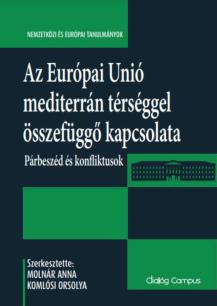The relationship of the European Union with the Mediterranean region

Despite its many contradictions and its historical, cultural, religious, and fault lines arising from different economic and social development, the Mediterranean region can be considered a unified region. On the one hand, the internal processes, the conflicts of today, as well as the network of relationships between each other, the rapidly changing global, regional and local political - often unpredictable - events and actors, on the other hand, the "long period" examined by one of the greatest researchers of the region, the French historian Fernand Braudel ( longue durée) is determined simultaneously by the processes taking place. The concept of a long duration emphasises the permanence that goes back to hundreds of years, the peculiarity existing in deeply rooted and almost unchanged structures. These are the permanent factors that, despite the rapidly changing events on the surface, determine the conflicts, the relations and thus also the dialogue between the two shores of the Mediterranean Sea.
In the course of our investigations, we placed great emphasis on examining the consequences of conflicts arising in the EU's immediate neighborhood and the resulting weak statehood. In their studies, Anna Molnár and Erzsébet N. Rózsa analyse and present the possibilities and limitations of the European Union's normative role and foreign policy ambitions, as well as the institutional framework of Euro-Mediterranean cooperation. Orsolya Komlósi examines the work and tasks of the Anna Lindh Foundation, an intergovernmental institution founded as part of the Barcelona process. Viktor Marsai and Péter Wagner analyse the current situation of the conflicts, as well as the possibilities for future settlement, through the presentation of the situation in Libya and Syria. Mariann Vecsey's study summarises the measures and efforts taken at the European Union level to deal with the migration and refugee crisis, which is intensifying as a result of the ongoing crises. In her research, Anna Molnár analysed and examined the achievements of the European Union Naval Force Mediterranean (EUNAVFOR MED) Operation Sophia, the challenges and the criticisms leveled against it. Károly Benes presents the European Union's relations with Lebanon, paying special attention to the characteristics of the Lebanese public law system and foreign policy that determine them, as well as its influence by regional power games. The chapters at the end of the volume examine the foreign and domestic political and social processes of the Mediterranean region through case studies. In his study, István Szilágyi looks for answers to fundamental questions such as whether multiculturalism is a living reality, or whether migratory pressure and settlement, which takes the form of migration, lead to the formation of parallel societies according to law, and what role they play in this process, through the investigation of the migration processes of the Iberian Peninsula. Spiritual, religious, cultural, ethnic and identity factors. In her study, Mónika Szente-Varga analyzes and presents the background and driving forces behind the debate about Gibraltar, which has been revived since the 2010s. Klára Kecskeméthy examines the relationship between NATO and the Mediterranean region 8 The European Union's relationship with the Mediterranean region from the foundation of the alliance to the present day. In the final study of the volume, Zoltán Kalmár analyses the Israeli-American relationship during the first period of Donald J. Trump's presidency.
Although in our book we basically set out to present one political-diplomatic event of our days, and thus we focused on the rapidly changing time plane instead of the long duration, we always kept in mind the characteristics of the almost motionless body of water under the waves of the Mediterranean Sea. The book entitled The relationship of the EU with the Mediterranean region (Dialogue and conflicts) examines the EU's Mediterranean policy, the work and tasks of the Anna Lindh Foundation, which promotes intercultural dialogue, as well as questions related to migration, and presents the Mediterranean region through the internal problems of a conflict state. typical main processes. The research and the preparation of the manuscript were completed in September 2017.